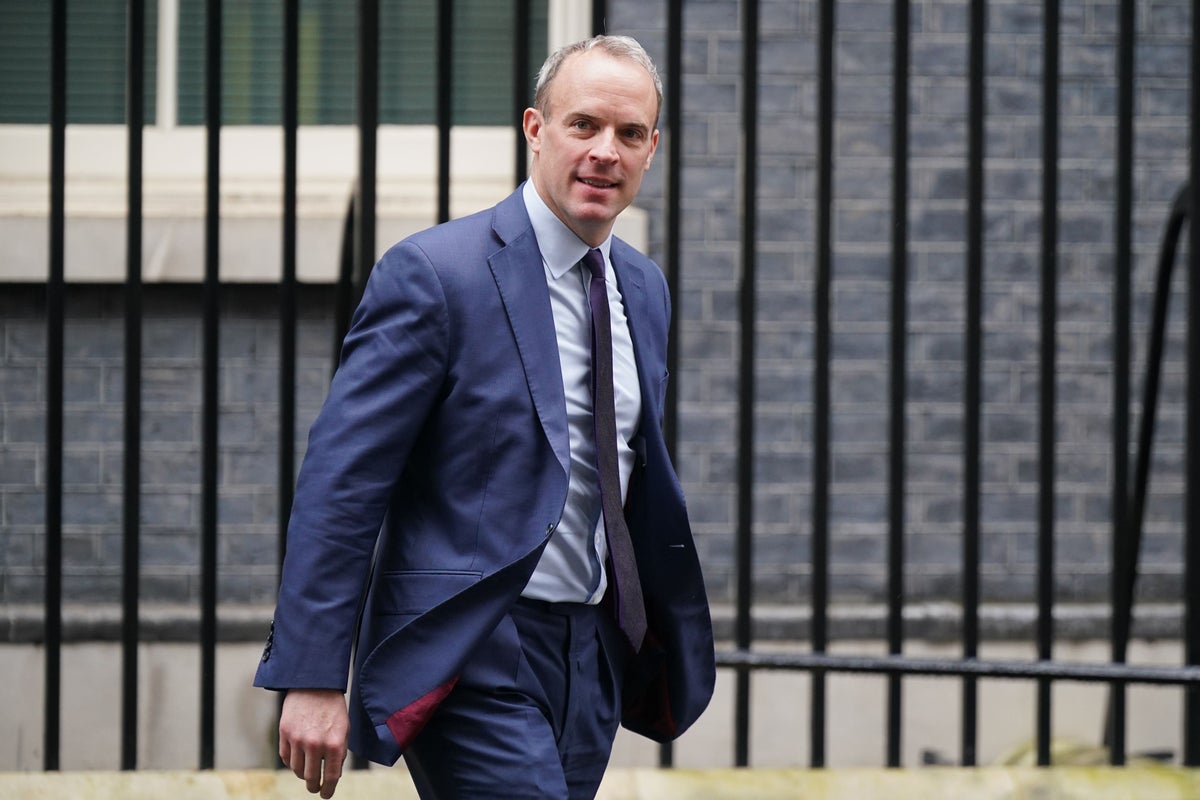
Bullying of civil servants in Whitehall is set to worsen after the “farce” of Dominic Raab’s departure from government, experts have warned.
Officials will be deterred from filing formal complaints against other ministers in the future, they said, amid claims of a “chilling” effect.
A row also erupted as allies of the former deputy prime minister were accused of “massively undermining” the UK’s ambassador to Spain - by naming him as the man at the centre of one of the upheld complaints.
Mr Raab was forced to resign after an independent investigation found he had acted in an intimidating and aggressive way towards officials.
But civil servants who claimed he bullied them only found out the results of their complaints from rolling news channels, sources close to the process said.
And Rishi Sunak came under fire for his decision to wait 24 hours before releasing the inquiry’s findings, allowing his deputy time to resign and write a national newspaper article setting out his side of the story first.
Dave Penman, the leader of the FDA union that represents senior civil servants, told The Independent that the delay between the report landing on Mr Sunak’s desk and Mr Raab’s eventual resignation was a “farce” that would “only underline that this is a process that’s about the politics and not the people”.
The events of Mr Raab’s ejection from government would “absolutely” deter others from raising complaints, he said, adding: “If bullies think they can get away with it, it flourishes”.
As he resigned Mr Raab claimed the findings against him set out a “playbook for a small number of officials to target ministers”.
But Hannah White, the director of the Institute for Government (IfG), said "no civil servant would feel encouraged to speak out in future".
She said that reading Mr Raab’s resignation letter, and one sent in response by the prime minister: "No civil servant would conclude that the current Government is keen to establish a culture of accountability and professionalism.”
Mr Raab’s allies also came under fire after a British ambassador at the centre of one of the upheld bullying complaints was identified as the UK’s ambassador to Spain, Hugh Elliott, according to The Daily Telegraph.
The paper was told that Mr Raab had heard reports that Mr Elliott had gone beyond a Cabinet-agreed position to never have Spanish officers permanently stationed in Gibraltar.
A Conservative former minister said that naming Mr Elliott, whose identity had been carefully anonymised in the official report, “massively undermined” the senior diplomat, especially as civil servants cannot publicly defend themselves.
The former head of the civil service Lord Kerslake told The Independent that it was “poor form” and “technically a breach of the Official Secrets Act.”
Spain is seen as an important diplomatically, given Brexit and the conflict over Gibraltar.
Alex Thomas, from the Institute for Government, said: “The credibility of one of the UK representatives overseas is dependent on the fact that they properly represent their government. To put that allegation out there without… the opportunity to refute it is potentially damaging.”
Downing Street has declined to comment.







